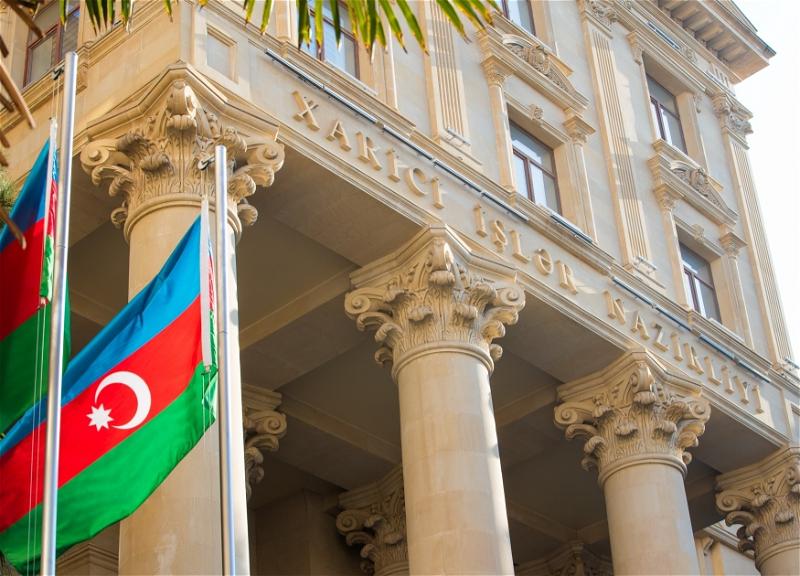Netherlands joins France in targeting Azerbaijan Windmills of hypocrisy
Last week, the House of Representatives in the Netherlands passed two additional anti-Azerbaijani resolutions. In situations like this, one might typically ask, "Don’t you have anything better to do?"
However, in the context of this European nation, that phrase loses its ironic undertone. It seems that the Dutch lawmakers genuinely have little else to occupy their time. This situation could be seen as good news for the Netherlands. The country is prosperous, its citizens enjoy a high standard of living, and everything is functioning smoothly. In terms of security, the situation is stable—especially considering the ongoing war at the other end of Europe. While a new Hitler may loom in the east, the ruling class appears to welcome such threats rather than fear them.
Of course, there are issues related to immigration, but these do not reach the acute levels seen in countries like France. The Netherlands is a calm European nation, well-fed and content, striking a balance between seriousness and a relaxed attitude. They’ve legalized nearly everything possible: marijuana, various types of mushrooms, same-sex marriage, and more. In truth, it all feels a bit mundane. The people of this European lowland seem somewhat saturated, like the old woman in Pushkin's fairy tale, demanding more excitement.
Now seems like the perfect time to turn their attention to global issues and engage in some form of foreign policy activity.

As the Dutch lawmakers indulge their romantic impulses, a heavy groan reverberates from the ridges of the Lesser Caucasus. It is the “bent under the unbearable burden of the infidel oppression, the oldest Christian nation” crying out for help from its brethren. Wait a minute—something seems amiss here. Armenia is supposed to be an independent state, and furthermore, it is filled with Russian, European, and American troops—what infidels are we talking about? True, there are also Iranian officers, but they’re not the usual kind of infidels; they’re seen as more acceptable and don’t provoke hostility among the Armenians—after all, this is a nation that takes pride in being the land of the Aryans.
So why is this “long-suffering” nation groaning? It turns out that neighbouring Azerbaijan “attacked” Karabakh and expelled “100, no, 120,000 Armenians” from the region. They also allegedly refuse to release “prisoners of war.” For Dutch citizens yearning for a taste of turmoil, this is exactly what they crave. Without the presence of Armenian war criminals, their lives feel as bleak as if the sun had been stolen by an evil crocodile, who, as we know, spoke Turkish.
In the previous attack against Azerbaijan, which “occurred” in September, Dutch legislators strongly recommended that the government support Armenia in every possible way, particularly in the context of the “seizure of Karabakh.” The current initiative, as mentioned earlier, has resulted in two resolutions. The first resolution states: “Considering that the Azerbaijani army attacked Nagorno-Karabakh (again! – Ed.) in September 2023, causing almost the entire population to flee to Armenia and not yet return to their homes, and also because Azerbaijan is destroying Armenian cultural heritage in the region… We call on the government to take action to protect Armenian cultural heritage, both under the 1954 Hague Convention and within the framework of UNESCO.”
The second resolution emphasizes that “obstacles (to the peace process – Ed.) still exist, including Azerbaijan’s continued detention of Armenian prisoners of war.” The resolution calls on the Dutch government, along with other European countries, to intensify pressure on Azerbaijan to expedite the release of all Armenian “prisoners of war.”
Following the parliamentary initiative, a representative of the executive branch—Dutch Foreign Minister Caspar Veldkamp—also expressed support for these resolutions during his speech. He called for the release of individuals associated with the former separatist regime and terrorists arrested by the Azerbaijani side, framing them as “prisoners of war
Naturally, this surge of activity from the Dutch has not gone unanswered in Azerbaijan. The Azerbaijani Foreign Ministry stated in its response: “It is regrettable that the aforementioned documents and expressed opinions completely ignore the fact of military occupation that was once perpetrated against our country, the ethnic cleansing of the Azerbaijani population, and the ongoing territorial claims of the Armenian side against Azerbaijan.”

Naturally, this surge of activity from the Dutch has not gone unanswered in Azerbaijan. The Azerbaijani Foreign Ministry stated in its response: “It is regrettable that the military occupation against our country and the ethnic cleansing of the population of Azerbaijan as well as Armenia’s still ongoing territorial claims against Azerbaijan are completely ignored in the mentioned documents and opinion.”
It must be noted that the Netherlands has become the second European country, after France, to demonstrate hostility towards Azerbaijan openly. This is not surprising, considering that these two nations could be labelled as leaders in global Islamophobia. Furthermore, they are both active proponents of aggressive colonial policies in the 21st century, a point that Azerbaijani lawmakers have been quick to highlight.
“The colonial past of the Netherlands is marked by the enslavement and exploitation of numerous peoples in Asia, Africa, and the Americas, along with numerous crimes committed against them. As they expanded their colonial empire through brutal tactics, the Netherlands consistently prioritized profit over human rights. A significant portion of the Netherlands' development is built on the plundered national wealth of enslaved countries. Therefore, the statement from the Netherlands—who continue to keep various peoples around the world in a state of dependency—that they are making efforts to overcome the severe consequences of their own colonial history should be viewed as hypocrisy,” stated the Milli Majlis of Azerbaijan.
The Baku Initiative Group (BIG) has announced its invitation to the Parliament of the Netherlands to urge the government to put an end to the crimes occurring on the islands of Bonaire, Sint Maarten, Aruba, Curaçao, Sint Eustatius, and Saba. The group also called for the establishment of an investigative commission to hold accountable those responsible for past and ongoing crimes. Additionally, the Group urges the European Union to support the creation of a relevant body under the UN Human Rights Council to oversee criminal activities in these territories and facilitate forwarding recorded cases to other UN bodies. “We urge you to support initiatives against colonial crimes at the international level and back the activities of the Baku Initiative Group,” BIG stated.
There is a sense that Dutch lawmakers will soon be occupied with different foreign policy issues rather than meddling in the internal affairs of Azerbaijan. Overall, this situation may not bode well for the Netherlands.








